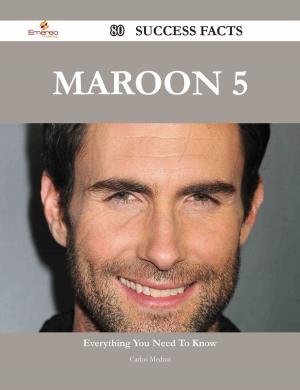Plato and the Other Companions of Sokrates, 3rd ed. Volume I (of 4) - The Original Classic Edition
Nonfiction, Reference & Language, Reference, Fiction & Literature| Author: | George Grote | ISBN: | 9781486447732 |
| Publisher: | Emereo Publishing | Publication: | March 18, 2013 |
| Imprint: | Emereo Publishing | Language: | English |
| Author: | George Grote |
| ISBN: | 9781486447732 |
| Publisher: | Emereo Publishing |
| Publication: | March 18, 2013 |
| Imprint: | Emereo Publishing |
| Language: | English |
Finally available, a high quality book of the original classic edition of Plato and the Other Companions of Sokrates, 3rd ed. Volume I (of 4). It was previously published by other bona fide publishers, and is now, after many years, back in print.
This is a new and freshly published edition of this culturally important work by George Grote, which is now, at last, again available to you.
Get the PDF and EPUB NOW as well. Included in your purchase you have Plato and the Other Companions of Sokrates, 3rd ed. Volume I (of 4) in EPUB AND PDF format to read on any tablet, eReader, desktop, laptop or smartphone simultaneous - Get it NOW.
Enjoy this classic work today. These selected paragraphs distill the contents and give you a quick look inside Plato and the Other Companions of Sokrates, 3rd ed. Volume I (of 4):
Look inside the book:
When we thus advert to the vocation of philosophy, we see that (to use the phrase of an acute modern author2) it is by necessity polemical: the assertion of independent reason by individual reasoners, who dissent from the unreasoning belief which reigns authoritative in the social atmosphere around them, and who recognise no correction or ix refutation except from the counter-reason of others. ...Where I find difficulties forcibly dwelt upon without any solution, I imagine, not that he had a good solution kept back in his closet, but that he had failed in finding one: that he thought it useful, as a portion of the total process necessary for finding and authenticating reasoned truth, both to work out these unsolved difficulties for himself, and to force them impressively upon the attention of others.4 ...The philosophy of the fourth century B.C. is peculiarly valuable and interesting, not merely from its intrinsic speculative worth — from the originality and grandeur of its two principal heroes — from its coincidence with the full display of dramatic, rhetorical, artistic genius — but also from a fourth reason not unimportant — because it is purely Hellenic; preceding the development of Alexandria, and the amalgamation of Oriental veins of thought with the inspirations of the Academy or the Lyceum.
About George Grote, the Author:
His father, another George, married (1793) Selina, daughter of Henry Peckwell (1747–1787), minister of Selina, Countess of Huntingdon's chapel in Westminster, and his wife Bella Blosset (descended from a Huguenot officer Salomon Blosset de Loche who left the Dauphiné on the revocation of the Edict of Nantes), and had one daughter and ten sons, of whom George was the eldest. ...In April 1822 he published in the Morning Chronicle a letter against George Canning's attack on Lord John Russell, and edited, or rather re-wrote, some discursive papers of Bentham, which he published under the title Analysis of the Influence of Natural Religion on the Temporal Happiness of Mankind by Philip Beauchamp (1822).
Finally available, a high quality book of the original classic edition of Plato and the Other Companions of Sokrates, 3rd ed. Volume I (of 4). It was previously published by other bona fide publishers, and is now, after many years, back in print.
This is a new and freshly published edition of this culturally important work by George Grote, which is now, at last, again available to you.
Get the PDF and EPUB NOW as well. Included in your purchase you have Plato and the Other Companions of Sokrates, 3rd ed. Volume I (of 4) in EPUB AND PDF format to read on any tablet, eReader, desktop, laptop or smartphone simultaneous - Get it NOW.
Enjoy this classic work today. These selected paragraphs distill the contents and give you a quick look inside Plato and the Other Companions of Sokrates, 3rd ed. Volume I (of 4):
Look inside the book:
When we thus advert to the vocation of philosophy, we see that (to use the phrase of an acute modern author2) it is by necessity polemical: the assertion of independent reason by individual reasoners, who dissent from the unreasoning belief which reigns authoritative in the social atmosphere around them, and who recognise no correction or ix refutation except from the counter-reason of others. ...Where I find difficulties forcibly dwelt upon without any solution, I imagine, not that he had a good solution kept back in his closet, but that he had failed in finding one: that he thought it useful, as a portion of the total process necessary for finding and authenticating reasoned truth, both to work out these unsolved difficulties for himself, and to force them impressively upon the attention of others.4 ...The philosophy of the fourth century B.C. is peculiarly valuable and interesting, not merely from its intrinsic speculative worth — from the originality and grandeur of its two principal heroes — from its coincidence with the full display of dramatic, rhetorical, artistic genius — but also from a fourth reason not unimportant — because it is purely Hellenic; preceding the development of Alexandria, and the amalgamation of Oriental veins of thought with the inspirations of the Academy or the Lyceum.
About George Grote, the Author:
His father, another George, married (1793) Selina, daughter of Henry Peckwell (1747–1787), minister of Selina, Countess of Huntingdon's chapel in Westminster, and his wife Bella Blosset (descended from a Huguenot officer Salomon Blosset de Loche who left the Dauphiné on the revocation of the Edict of Nantes), and had one daughter and ten sons, of whom George was the eldest. ...In April 1822 he published in the Morning Chronicle a letter against George Canning's attack on Lord John Russell, and edited, or rather re-wrote, some discursive papers of Bentham, which he published under the title Analysis of the Influence of Natural Religion on the Temporal Happiness of Mankind by Philip Beauchamp (1822).















